Coronavirus: Deputy CMO Paul Kelly says no reason for states to remain closed
One of Australia’s top doctors said there is no reason for the domestic borders to remain closed, with many states going days without new COVID-19 cases. But he warned infections will increase when the economy reopens.
Coronavirus
Don't miss out on the headlines from Coronavirus. Followed categories will be added to My News.
Australia leads world in independent COVID-19 response probe
WHA agrees in virtual assembly to WHO coronavarius inquiry
China retaliates with tariffs triggering possible trade war
Donald Trump backs Australia while Chinese officials stall
One of Australia’s top doctors said there is no reason for the state borders to remain closed, but warned we will see more COVID-19 cases as the economy starts to reopen.
Deputy Chief Medical Officer Paul Kelly said domestic border closures were never part of the national response, but States decided on closures “to protect their own populations”.
“At that time we were seeing large numbers of cases starting to develop, particularly in New South Wales and Victoria. And so I can understand why those decisions were made,” he said.
“If we look at the situation now, several of those states and territories have not had any cases for the last few days.”
“From a medical point of view I can’t see why the borders are still closed but, as I said, that’s for the states and territories themselves to decide when that time is right for them.”
Professor Kelly warned that as the economy starts to open up again, Australia will start to see more cases.
“We have designed a system and strengthened that system to find cases quickly. To minimise the numbers of so-called chains of transmission,” he said.
“So someone infecting a couple of others and those infecting a few others and that’s how we get our large clusters of cases. As we’re minimising that, I believe that the chances are that we will see some cases.”
US diplomat: Australia leading the world in COVID-19 fight
A top US diplomat has praised Australia for its “outstanding” international leadership during the coronavirus crisis, crediting the Morrison Government with securing an inquiry into the pandemic’s origins and a review of wildlife wet markets.
Deputy Chief of Mission at the US Embassy in Canberra Michael Goldman said Australia’s success in suppressing the coronavirus domestically had given the country genuine “credibility” to speak on the international stage.
“The fact your Prime Minister was able to rally more than I believe 130 countries for the World Health Assembly resolution just this past week … was really outstanding,” he said.
“The fact that this (resolution) calls for independent, transparent inquiry into the origins of the disease – this isn’t about pointing fingers, but it’s about helping us understand that the current situations that we can deal with (the virus) effectively.
“It’s also about looking to the future because this won’t, I imagine, be the last time we have a novel virus the world has to confront and we do need to know what we did right, and what we did wrong.”
Mr Goldman said he applauded Australia for its leadership in gaining a scientific review of the risk of wildlife wet markets.
“(Wet markets) was something that Australia’s government called on early and loudly, and for a while sort of in a lonely position, and now I think it’s gained a lot of traction because it just makes sense,” he said.
“Again it’s not about pointing fingers, there are wet markets outside Wuhan, there are wet markets outside of China, (but) if they’re not properly regulated they can be a vector for diseases.”
Mr Goldman said the US and Australia were leading the COVID-19 response together, but in some instances Australia had stepped forward.
“I think we are really benefiting from Australia taking a big step up in this instance,” he said.
Mr Goldman arrived in Canberra in March 2020, after three years at the U.S. Embassy in Suva, Fiji.
He recently served in Washington as Deputy and Acting Director for China and Mongolia in the Bureau of East Asian and Pacific Affairs.
Minister rejects reports China targeting dairy, wine, fruit
Australia has rejected reports its dairy, wine and fruit exports to China could be hit with anti-dumping probes and other technical interruptions if trade tensions continue to deteriorate.
China has reportedly drawn up a list of potential goods, which includes seafood, oatmeal, fruit, dairy and wine, that could be subjected to anti-dumping probes, tariffs, customs delays or stricter quality checks, according to Bloomberg.
But Trade Minister Simon Birmingham said it was an “unsourced claim” for the Chinese authorities to respond to.
“Australia notes recent comments from Chinese spokespeople emphasising the mutual benefits that flow from our trading relationship,” he said.
“We share those sentiments and will continue to work with China to uphold the commitments we both made under the China Australia Free Trade Agreement.”
The report does not indicate if this “list” was drawn up recently, in light of increasing tensions over Australia’s push for an international COVID-19 inquiry, or if the goods have long been on China’s radar.
It is also not known if the Chinese Government has exclusively targeted Australia, or if they have similar hit lists for other nations.
It is understood the federal government is seeking to ascertain the origins and veracity of the report.
It comes as Health Minister Greg Hunt has renewed Australia’s push to beef-up the inspection powers of the World Health Organisation in light of the overwhelming support for a review into COVID-19.
“I think the global response to the world health assembly motion has been deeply heartening,” he said.
“We have other countries committed to the process, and one of the things we want to see is not
just an independent and impartial review, but real steps forward on independent inspection capabilities.”
Mr Hunt said those capabilities were “very important” for early identification of the risk of new diseases and to discover the sources of transmission early.
“We know that in a connected world we have to do this,” he said.
“So we are committed. We have laid out our principles. We set out our resolution, and we have followed that path.”
Including Australia, 137 countries co-sponsored the World Health Assembly resolution calling for an independent review of the COVID-19 pandemic, the largest number of co-sponsors in history for such a motion.
“We really welcome what the world has done,” Mr Hunt said.
“So I am both confident and hopeful that, going forward, this resolution will represent a transformative moment in international disease detection and discovery, going forward.”
5.9m Australians download COVIDSafe app
Announcing $400m for health research, Health Minister Greg Hunt said 5.9 million people had downloaded the COVIDSafe app which he described as “an extremely important development.”
Mr Hunt said the advice he received was that all states and territories have been able to use the COVIDsafe app, after reports NSW had issues using the app’s data for contact tracing.
He said there were 7071 cases detected in 1.1 million tests conducted in Australia.
Of these, 11 cases were detected in the 24 hours to 7am: New South Wales, where all four of their cases were in hotel quarantine and Victoria, where one of the cases was a hotel quarantine.
“So five out of the 11 cases have come from hotel quarantine and that emphasises the first of our containment measures, border control, as being absolutely essential,” Mr Hunt said.
He said only seven people were on ventilation.
Mr Hunt announced $400 million for 267 projects under the National Health and Medical Research Council and the Medical Research Future Fund.
Of this, $87 million will go towards cancer research, $54 million for mental health research, $46 million for cardiac funding and $84 million for infectious disease control and research.
“One of those projects is … professor Alan Chang’s, looking at vaccine preparedness, in particular with an influenza and pneumonia … focus, to prevent outbreaks in Australia and across the world,” Mr Hunt said.
“This research is fundamental to this crisis and future crises.”
Asked about the future of international students in Australia, Mr Hunt said universities should put forward suggestions about how they could bring international students back to campuses. “We are welcoming of proposals for universities, subject to it being at the same time as their general student populations, to look at means of bringing back through supervised, stringent quarantine, international students,” he told reporters.
“That is something that both state and federal governments would be willing to consider.”
In February there was a 41 per cent drop – 61,400 people – in the number of overseas higher education students arriving compared with the previous year.
This continued through March, with a further 10 per cent fall in arrivals, and in April just 30 people on temporary student visas arrived in Australia. By comparison, in April last year 46,480 students arrived.
AUSTRALIA TO CHINA: DON’T PUNISH US
It comes as Foreign Minister Marise Payne has called on China not to conflate trade issues with a diplomatic spat over an international coronavirus inquiry.
The World Health Assembly has passed a motion to conduct a review of the global coronavirus response.
The motion was proposed by Australia, New Zealand, the UK and EU member states at the virtual WHA summit.
Australia has declared the inquiry has a clear mandate to look at the origins of the virus, an issue that sparked a deepening rift with China.
It calls for the World Health Organisation (WHO) to work with the UN and other organisations to “identify the zoonotic source of the virus and the route of introduction to the human population, including the possible role of intermediate hosts.”
The aim is to “reduce the risk of similar events as well as to provide guidance on how to prevent SARS-COV2 infection in animals and humans and prevent the establishment of new zoonotic reservoirs, as well as to reduce further risks of emergence and transmission of zoonotic diseases.”
Bloomberg reports Chinese officials are considering stricter checks for some seafood, oats and fruit and state media could encourage consumer boycotts. Senator Payne said Australian exports would always comply with other countries’ rules.
“We would be disappointed if there was any process of conflating these issues,” she told ABC radio on Wednesday.
“We deal with the trade issues on their merits as they stand. “We will engage respectfully. Most importantly though, we will always protect Australia’s national interest.”
Australia’s trade minister said on Tuesday that Beijing had erred by imposing stiff tariffs on Australian barley in what is widely seen as punishment for advocating an investigation into the coronavirus pandemic.
China effectively ended imports of Australian barley by putting tariffs of more than 80 per cent on the crop, accusing Australia of breaching World Trade Organisation rules by subsidising barley production and selling the crop in China at below production costs.
The move came a week after China banned beef imports from Australia’s four largest abattoirs over labelling issues.
“Australia is not interested in a trade war. We don’t pursue our trade policies on a tit-for-tat basis,” Trade Minister Simon Birmingham told reporters.
“We operate according to the trade rules that we strongly support.”
Mr Birmingham said China “has made errors of both fact and law” in applying WTO rules, adding that there was no evidence that Australia was engaged in dumping of products.

The trade dispute has coincided with Australia’s push for an international investigation into the origins of the coronavirus pandemic and responses to it.
Beijing has denied they are related.
The World Health Organization bowed to calls Monday from most of its member states to launch an independent probe into how it managed the international response to the virus, which was first found in China late last year.
The evaluation would stop short of looking into contentious issues such as the origins of the virus.
Australia has been seen as a leader in rallying global support for an inquiry, attracting Chinese criticism that it is parroting the United States and inviting a Chinese boycott of exports and services.
The Chinese Embassy in Australia said on Tuesday that the WHO consensus reached by its decision-making body, the World Health Assembly, in Geneva did not vindicate Australian calls for an investigation.
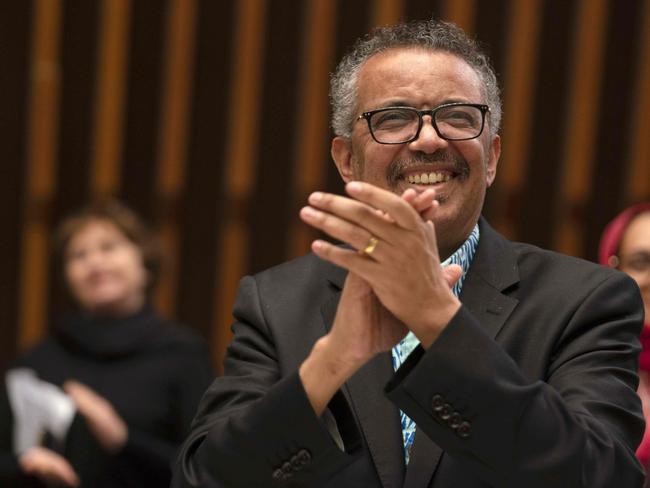
“The draft resolution on COVID-19 to be adopted by the World Health Assembly is totally different from Australia’s proposal of an independent international review,” an embassy statement said.
“To claim the WHA’s resolution a vindication of Australia’s call is nothing but a joke,” the statement added.
In Beijing, Foreign Ministry spokesman Zhao Lijian called on Australia to “completely abandon political manipulation and return to the general consensus of the international community,” which China believes is for an eventual investigation once the pandemic is contained.
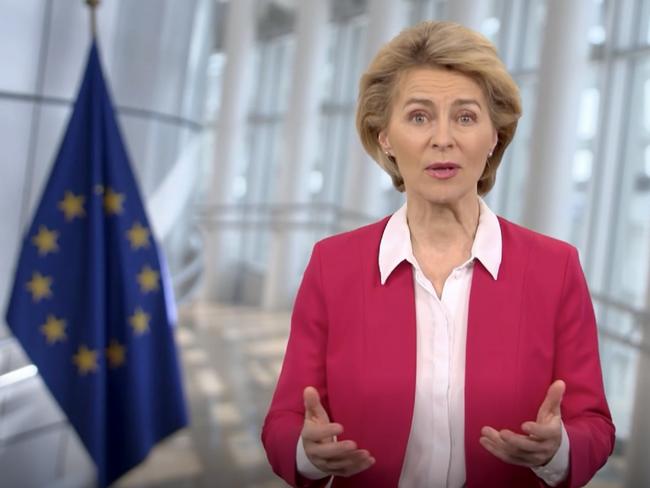
AUSTRALIA SKIRTS CHINA TRADE WAR
Weihuan Zhou, a University of New South Wales international trade expert, said China began its barley investigation in 2018 in response to Australia imposing anti-dumping duties on Chinese steel and aluminium.
But Zhou said he suspects the Chinese decisions on beef and barley are because of Australia’s advocacy for the coronavirus investigation.
His suspicion was bolstered by China’s decision to set the anti-dumping tax at 73.6 per cent – far higher than the 56 per cent that Chinese industry had requested.
Beijing also imposed a 6.9 per cent anti-subsidy tax.
Mr Birmingham said he understood why people drew the link between trade and Australia’s coronavirus stance given Chinese Ambassador Cheng Jingye’s “unhelpful comments” in a newspaper interview last month.
Mr Cheng told The Australian Financial Review that Australia might face a Chinese boycott of its tourism and exports of wine, beef and other goods if the government pressed for a coronavirus inquiry.
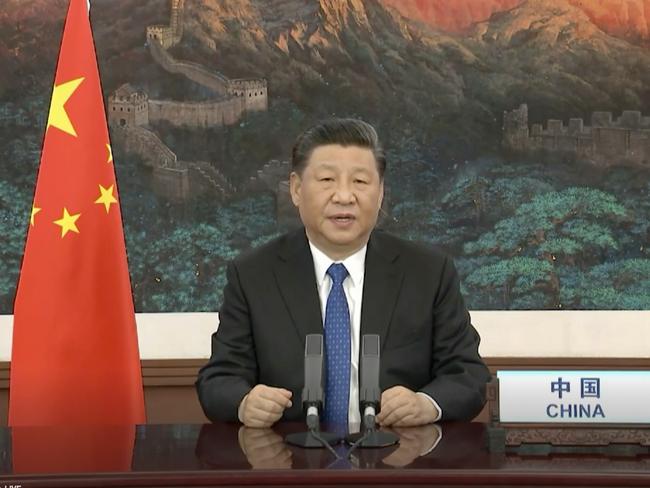
China is the number one market for Australian beef, accounting for about 30 per cent of exports.
“Others can debate whether or not there’s a linkage,” Mr Birmingham said.
Beijing has regularly used access to its huge market as leverage against governments in political disputes over the past decade.
Chinese officials routinely refuse to confirm a trade disruption is related to a political clash but make it clear Beijing wants concessions.
Australian barley farmer Andrew Weidemann said the tariff barrier “stops the trade completely” with Australia’s biggest customer.
“It’s a really bitter pill to swallow,” Mr Weidemann said. “It’s a real dent in our economy and it will have a big impact.”
CHINA REJECTS IMMEDIATE PROBE OF VIRUS RESPONSE
China supports an eventual review of the global response to the coronavirus pandemic, but not an immediate probe as Australia and others have proposed.
Chinese President Xi Jinping said China supports the idea of a comprehensive review of the global response to COVID-19 and it should be “based on science and professionalism led by WHO, and conducted in an objective and impartial manner.”
China had long rejected the idea of an investigation into the origins and response to the pandemic but its attitude appeared to soften at the World Health Assembly on Monday.
On Tuesday, foreign ministry spokesman Zhao Lijian says Chinese would agree to a probe “after the global epidemic is under control, summing up experience and making up for deficiencies.”
The U.N.’s World Health Association should lead that work with a “scientific and professional attitude … in the principle of objectivity and fairness.”
He rejected Australia’s call for an independent body to launch the inquiry following complaints the WHO has shown favouritism toward China.
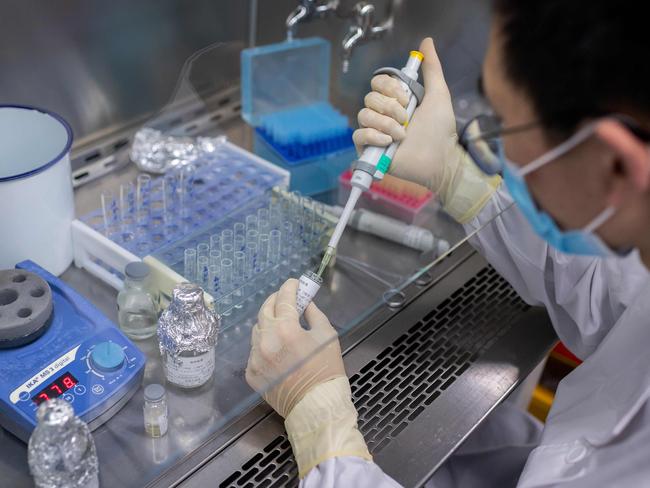
China reported six new cases on Tuesday, a day after President Xi Jinping announced his country will provide $A3.2 billion to help deal with the outbreak and its economic fallout.
Three of the new cases were listed as imported. Two were registered as local infections in Jilin province, and another local case was identified in Hubei province, where China’s outbreak was centred.
Authorities in Hubei carried out nucleic acid tests on more than 1.5 million people between May 11 and May 17.
More than 72.5 per cent of the tests were administered in Wuhan, where authorities plan to eventually test all 11 million residents as part of safeguards against a second wave of virus cases.
Wuhan and surrounding cities in Hubei accounted for the bulk of China’s reported 82,690 cases and 4634 deaths from COVID-19.
EUROPEAN UNION URGES NATIONS TO BACK W.H.O.
The EU is urging all countries to back the UN agency after US President Donald Trump threatened to permanently cut US funding to the World Health Organisation.
European Commission spokeswoman Virginie Battu-Henriksson says global co-operation is “the only effective and viable option to win this battle.” She says “this is the time for solidarity.
It is not the time for finger pointing or undermining multilateral co-operation.”
In a letter to WHO’s director-general, Tedros Adhanom Ghebreyesus, Mr Trump wrote the agency’s incompetence in its response to the pandemic.
This is the letter sent to Dr. Tedros of the World Health Organization. It is self-explanatory! pic.twitter.com/pF2kzPUpDv
— Donald J. Trump (@realDonaldTrump) May 19, 2020
Mr Trump threatened to cut US WHO funding unless it commits to “substantive improvements” in the next 30 days.
A spokeswoman for the World Health Organisation says the U.N. health agency doesn’t have an immediate reaction to the letter from Mr Trump that listed his complaints, including “an alarming lack of independence” from China in its response to the coronavirus outbreak.
WHO spokeswoman Fadela Chaib says she’s seen the letter.
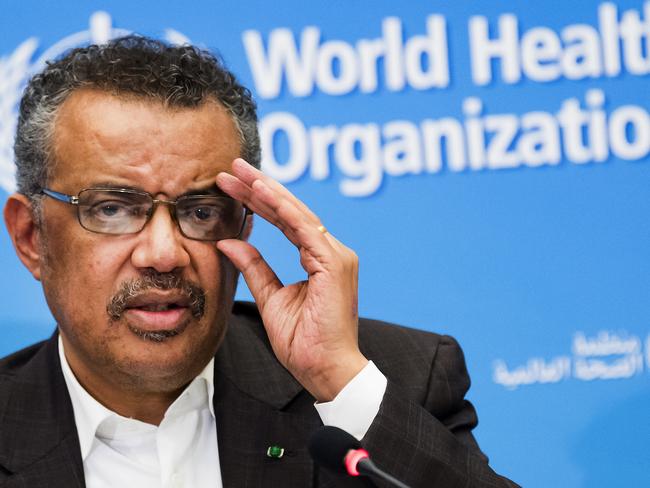
“I don’t have any reaction, we have been busy trying to finalise our agenda for the World Health Assembly,” she said, referring to health agency’s annual meeting, which has been shortened and will end later on Tuesday because of the COVID-19 outbreak.
“I am sure in the course of the day we will have more clarity and reaction to this letter,” she said at a regular U.N. briefing in Geneva.
Mr Trump pinned the letter to his Twitter account overnight, saying it was “self-explanatory!”
Among other things, Mr Trump pointed to his decision to suspend US contributions to the WHO pending a review of its actions in response to the outbreak.
He faulted its “repeated missteps” in the response to the pandemic, saying they have proven “very costly for the world.”
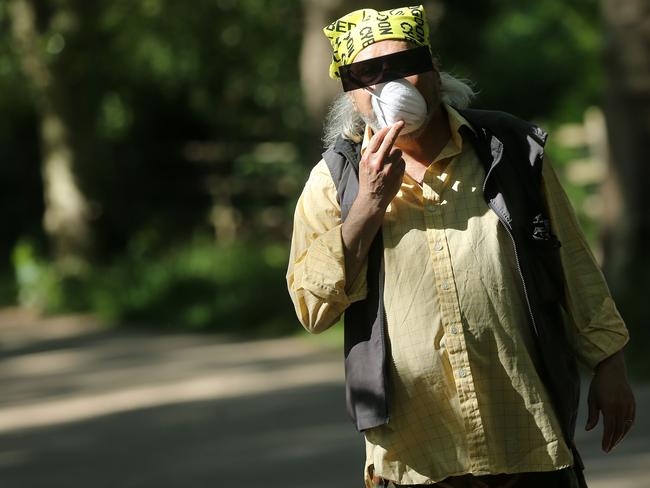
UK SUFFERS SURGE IN CASES
Britain’s coronavirus death toll hit 35,341 on Tuesday after hundreds more died in the UK – including a seven-year-old.
Yesterday marked the lowest rise in deaths in the UK since lockdown began, with 160 fatalities reported – but in one day that jumped to 545, according to The Sun.
The child fatality was one of 168 people in England with an underlying health condition to lose their lives.
Six more patients, the youngest of whom was 45, had no health condition known to medics.
It means the total number of deaths in England is now 24,913, NHS England officials say.
In Scotland, there were 29 more deaths. A further 17 people lost their lives in Wales, and seven in Ireland.
In total, 248,818 people have now tested positive for COVID-19.
New analysis published today suggests Britain’s overall death toll from the virus is far higher than the total reported by the Government so far – and has already passed 44,000.
The Office for National Statistics reports that 39,071 deaths involving the deadly bug occurred in England and Wales up to May 8 and had been registered up to May 16.
HONG KONG RAMPS UP TESTING
Hong Kong’s leader says the city is ramping up testing for the coronavirus, especially for workers at the busy international airport and caregivers at homes for the elderly and disabled.
Carrie Lam said on Tuesday that tests will be increased from 4500 to 7000 daily, with both the government health department and university laboratories taking part.
Hong Kong has gone several days without reporting new local infections, but a recent family cluster has increased concerns about those who show no symptoms passing the virus on to others, which the authorities hope can be remedied by increased testing.
Hong Kong on Tuesday also confirmed the extension of social distancing measures for two more weeks until June 4, meaning they will be in effect during the annual commemoration of the June 4, 1989, crackdown on pro-democracy protests in Beijing’s Tiananmen Square that is normally marked with a rally and march in Hong Kong.
Hong Kong, a densely populated city of more than 7 million people just across the border from mainland China, has recorded just 1055 COVID-19 cases and four deaths.
SINGAPORE APOLOGISES FOR TEST, CASES SPIKE
Singapore has apologised to 357 COVID-19 patients who received an erroneous text message saying they had again tested positive for the novel coronavirus.
The tiny Southeast Asian nation has confirmed over 28,000 cases of the disease, one of the highest tallies in Asia, and is under lockdown until June 1.
The death toll in Singapore stands at 22.
“The messages had been sent due to an IT system testing glitch as we sought to improve the efficiency of our system,” the health ministry said in a statement issued late Monday.
It apologised “for any inconvenience and anxiety caused” and said recipients had been alerted to the error within hours.
Two former COVID-19 patients who received the message told Singapore broadcaster ChannelNewsAsia that they had previously been confirmed as negative and had already been discharged.
The ministry did not immediately confirm whether recovered patients had received the messages.
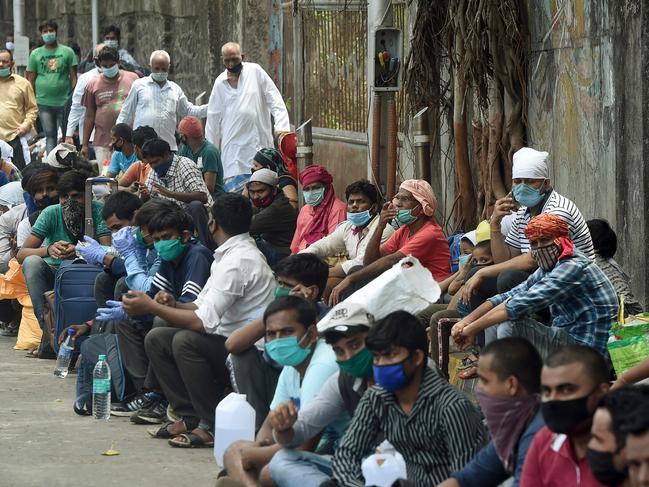
INDIA HAS 100,000+ CASES, INDONESIA EXTENDS LOCKDOWN
The number of coronavirus cases in India has surged past 100,000, and infections are now on the rise in the home states of migrant workers who left cities and towns during the nationwide lockdown.
India’s Health Ministry on Tuesday reported a total of 101,139 cases of the coronavirus and 3163 deaths.
Over the past week, India has seen an average of almost 4000 news cases a day, with states such as West Bengal, Bihar, Odisha and Gujarat, the major contributors of the migrant labour workforce in the country, showing major spurts in infections amid relaxed lockdown rules.
This year’s celebration marking the end of the Muslim fasting month of Ramadan will be muted in Indonesia’s capital, with authorities extending coronavirus restrictions.
Jakarta Gov. Anies Baswedan announced on Tuesday that restrictions initially slated to end Friday will be extended to June 4.
He urged Muslims to suspend communal gatherings, including religious activities in mosques, during Eid-al Fitr, which falls on Sunday.
Muslims usually congregate for Eid prayers in mosques and fields, and share meals among communities. Jakarta has become the centre of the COVID-19 outbreak in Indonesia, recording 6155 confirmed cases with 470 fatalities. Nationwide, 18,496 cases have been recorded, including 1221 deaths.
Originally published as Coronavirus: Deputy CMO Paul Kelly says no reason for states to remain closed


